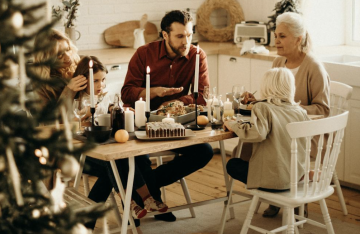As a parent or guardian, you play a pivotal role in your child’s ability to become a productive member of society. When your children are little, you should use this time to lovingly teach them about the ways of life and how to be successful. Don’t wait until your children turn seventeen to teach them how to manage their money. Start teaching them the ropes when they’re in their elementary years. To get started, consider four ways you can teach your kid how to be responsible.
Assign Age-Appropriate Chores
A five-year-old is not going to do a thorough job with a chore like washing the dishes. Instead, wait until they’re a little older before assigning them that task. If you have a Maltipoo puppy, for example, you can give them the responsibility of making sure that it has enough water. With that being said, some parents think that getting a dog will teach their child responsibilities but this is not an ideal reason to get a dog. Dogs require a lot of care and can get sick or even die if they aren’t cared for well enough so many parents find themselves taking care of the dog to prevent that. By taking over the responsibility, the children learn that someone else will pick up for their slack, and thus, they don’t have to care for the dog. If they can use a stepping stool to reach the sink, then they can fill a bottle with water. Then, they can pour that water into the dog’s bowl. Small steps like this will help them learn about the importance of caring for responsibilities on a daily basis.
Lead by Example
If you know of some areas in your life where you can become more responsible, work on strengthening that muscle in front of your child. If your child is used to seeing you run late for everything, work on becoming a stickler for time. As your child sees you taking your responsibilities seriously and improving, they’ll become inspired because their family leader is setting an example. Things like making your own bed every morning, cleaning the dishes after using them, and always putting the keys in the right place, can be a good start for showcasing being responsible for your belongings. Other things like playing with your kids when you say you’re going to play with them can also help them understand what it means to take responsibility for what they say they are going to do. Other things like taking responsibility for things that you say and do at work and then sharing those stories with your kids can help them see how responsible you are trying to be even when you are at work.
Provide Positive Incentives
When you show up to the gym and stick to a certain diet, the positive incentives include optimal health and confidence. For others, the ability to fit in those smaller jeans is incentive enough. When you follow through on your responsibilities, there are positive incentives you’ll get to enjoy. Provide incentives for your child when they demonstrate their commitment. If they complete their chores as expected for a number of consecutive days, consider giving them a treat like a new toy or a trip to the movies. You can even share a chore tracker with them. For example, they can get a sticker for every day they complete all of their chores. Then, once they have enough consecutive days, which were agreed upon at the beginning, then they get that item. This can even be something where if they want to cash in on their stickers, they can get something but if they hold out for more days, they can get something bigger. Examples could be getting skates and going to the skate park, or they could save up and get skates and go to a skating camp. When figuring out what the rewards should be, consider what they tend to value. If they love candy, then maybe candy would be a good reward. If they like trying new things, then look at local events or activities nearby that you can try. Events that don’t happen very often can be a great incentive since there is a deadline for the incentive. However, keep in mind that if your child doesn’t accomplish what they agreed to, then it will be even harder for them when they don’t get to go to that event.
Have Honest, Open-Ended Conversations
Always maintain an open dialogue with your children. While you can tell children to do something because you said so, it’s better to explain and provide insightful perspectives. If they don’t provide water for the new puppy, for example, the puppy could become dehydrated and suffer tremendously. Children need context for why it’s essential that they remain responsible. By the time you’re teaching them about credit scores, they’ll be able to grasp the totality of why it’s important when the conversations are honest and open-ended.
As you navigate through these various experiences, remember that patience is key. As an adult, you’re still learning various lessons on how to be even more responsible than you already are. Create a safe space for your child to express their emotions and grasp concepts. As you work on growing and learning together, your child will have a better chance of becoming a responsible child who grows into a responsible adult.




